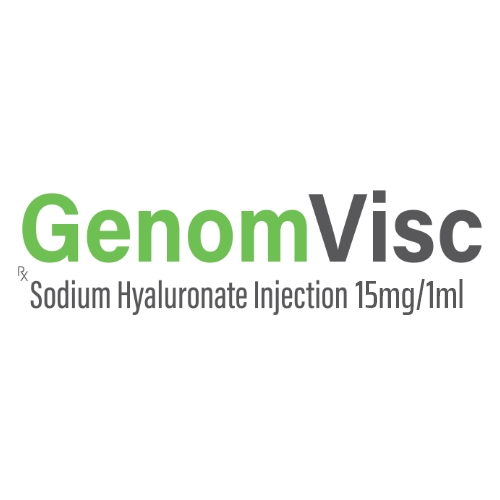Genomvisc
Sodium Hyaluronate EP 15mg
Phosphate Buffer Saline q.s.
Hyaluronic acid, also called hyaluronan or hyaluronate is a gel-like substance that is naturally present throughout the human body. In the joints, natural hyaluronic acid has several functions.
- Approved use of hyaluronic acid
The US Food and Drug Administration (FDA) approves the use of hyaluronic acid injections for treating knee osteoarthritis.
- Effects on knee pain and inflammation
Hyaluronic acid injections may reduce knee osteoarthritic symptoms by one or more of its following properties:
- Lubrication In some people, the viscosity of hyaluronic acid may provide better lubrication and shock absorption in the knee joint. These effects may reduce friction within the joint, thereby reducing pain and stiffness, and preventing the loss of cartilage and bone.


